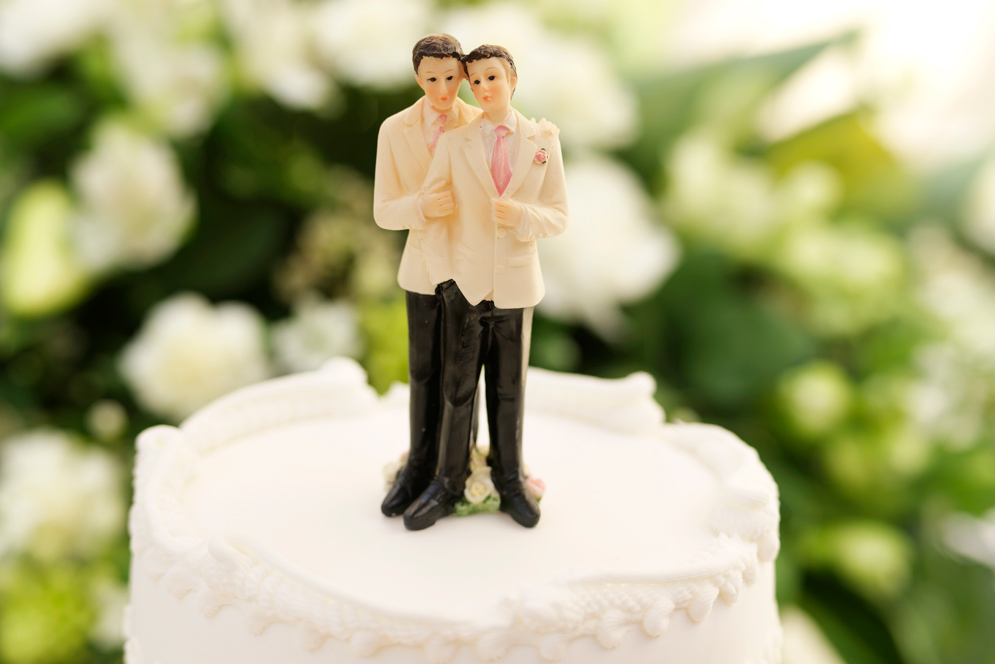Supreme Court Justice Anthony Kennedy wrote the court’s historic decision legalizing gay marriage in 2015. On June 4, 2018, he took pen in hand again, authoring a 7-2 decision favoring a Colorado baker who refused to serve a same-sex couple because of his religious objections.
The justices found that the Colorado Civil Rights Commission had displayed “clear and impermissible hostility” to baker Jack Phillips’ religious beliefs when it found he had violated state law in refusing to serve the gay couple, Charlie Craig and Dave Mullins. One commissioner argued that religion historically has been used to justify bigotry, including slavery and the Holocaust, rhetoric that showed illegal prejudice toward religion, Kennedy wrote.
The two dissenters were Justices Sonya Sotomayor and Ruth Bader Ginsburg, the latter saying the comments did not evidence antireligion prejudice.
Joined by other justices who’d ruled with him in the earlier case, Kennedy’s ruling shows that “rhetoric matters,” says Linda McClain, professor and Paul M. Siskind Research Scholar at the School of Law, who had rooted for the couple in the case.
“It was possible to evaluate Phillips’ claim without speaking of the appeal to religious beliefs as ‘despicable’ rhetoric,” she says, quoting the commissioner. “It is undeniably true that people have appealed to religious beliefs to justify inequality and discrimination, as Kennedy recognized.… We should learn from this history, but there are less inflammatory ways to make this point.”
McClain, who addresses the case in a book to be published next year, Bigotry, Conscience, and Marriage (Oxford University Press), analyzed the decision in an interview with Bostonia.
Bostonia: Do you agree with the decision?
McClain: Given Justice Kennedy’s comments at the oral argument about the need for mutual tolerance and respect, I was not surprised that his majority opinion narrowly ruled in favor of Phillips. I was relieved that the opinion also included important statements about the equal “dignity and worth” of “gay persons,” the legitimacy of state antidiscrimination law protecting their civil rights, and the “general rule” that business owners may not use religious objections to deny goods and services to persons protected under such laws. One [Supreme Court] case Kennedy cited was Newman v. Piggie Park Enterprises (1968), in which the Court rejected an argument by a barbeque owner that the public accommodations part of the federal Civil Rights Act of 1964 violated his religious beliefs about racial segregation.
Particularly damning were the remarks of one commissioner that “freedom of religion” had been used to justify slavery and the Holocaust and that it was “one of the most despicable pieces of rhetoric that people”…use their religion to hurt others. The opinion spoke of the need for “tolerance” in resolving “cases like this”; the Commission’s consideration “was neither tolerant nor respectful of Phillips’ religious beliefs.”
While I would have preferred a ruling affirming the Colorado Court of Appeals, it is important to point out the continuity between this opinion and Kennedy’s prior landmark decisions about the liberty and equality of “gay persons” (Kennedy’s term). Characteristic features of these opinions are ideas about evolving understandings of the meaning of the Constitution’s guarantees and the dignity and respect that should be accorded to gay people. These types of affirmations of the general legitimacy of antidiscrimination law and the necessary limits on the free exercise of religion in the marketplace are important for the resolution of future cases.
The decision seems narrowly reasoned, focusing on the state commission’s stated aversion to religion. Does that mean similar, future cases might be decided differently?
The Court left for another day how to address the “delicate” question of when the free exercise of one’s religion “must yield to an otherwise valid exercise of state power.” Kennedy listed many important factual distinctions that raised complex questions about the First Amendment and [that] might make a difference in future controversies.
What are your thoughts on the clashing rights here—the rights of a gay couple to equal treatment versus a retailer’s right to exercise his moral conscience?
I believe that a good model of how to resolve these controversies is the concurring opinion in [the 2013 New Mexico Supreme Court case] Elane Photography, LLC v. Willock. The opinion spoke respectfully about the sincere religious beliefs of the owner of the photography [studio], which made her decline to photograph a same-sex couple’s commitment ceremony, but it also explained—drawing on civil rights precedents—that there are limits to acting on those beliefs, in the public marketplace, when doing so infringes on the rights of others to be free from discrimination. That is the “price of citizenship” in a pluralistic society.
Thus, some public officials in blue states like Colorado that include “sexual orientation” in their antidiscrimination laws may view the important takeaway [from Kennedy’s opinion] that it is crucial to speak about people’s sincere religious beliefs in a respectful way, and to give such beliefs due consideration, even as officials conclude that the public values underlying public accommodations laws are so compelling that they cannot allow such exemptions. Or, it may be that some blue states with such laws may deem it prudent, going forward, to carve out a narrow religious exemption for a small class of wedding-related goods and services for small businesses.














































Related Stories
Gay Marriage Decision Confers “Equal Citizenship,” BU Scholar Says
The Impact of the Supreme Court Same-Sex Marriage Decision
LAW’s McClain analyzes much-awaited ruling
Methodist Bishop’s Gay Marriage Decision Cheers BU Church Leaders
Ends trials for clergy performing same-sex weddings in New York Conference
Post Your Comment